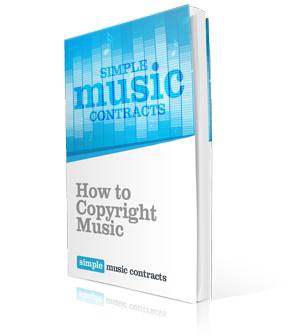 It’s all too easy to picture a songwriter as a lonely and tortured soul sitting alone in a dark basement pouring his feelings onto a page, but the fact is that many of the most popular (and most lucrative) songs throughout music history have been penned by two or more co-writers. Certain teams immediately pop to mind: Lennon/McCartney, Jagger/Richards, Rodgers/Hammerstein, and the list could seemingly go on forever. The majority of songs on today’s country and pop charts are written by two or more (and sometimes many more) writers. As a case in point, Katy Perry’s “California Gurls” was the best selling digital single of 2010, and there are five co-writers credited to the song.
It’s all too easy to picture a songwriter as a lonely and tortured soul sitting alone in a dark basement pouring his feelings onto a page, but the fact is that many of the most popular (and most lucrative) songs throughout music history have been penned by two or more co-writers. Certain teams immediately pop to mind: Lennon/McCartney, Jagger/Richards, Rodgers/Hammerstein, and the list could seemingly go on forever. The majority of songs on today’s country and pop charts are written by two or more (and sometimes many more) writers. As a case in point, Katy Perry’s “California Gurls” was the best selling digital single of 2010, and there are five co-writers credited to the song.
With all that said, co-writing songs can be a very difficult task. Though there are, of course, no set rules for working with another writer, since every songwriter works differently, particularly when he or she is attempting to work with another writer. There are writers that work with many different people throughout the course of their careers, and there are some that only ever work with one or two other writers.
Here, we will look at a few tips that can help the co-writing process go as smoothly as possible. As always, these should be adapted to any particular situation you find yourself in.
1. The first and most important thing you want to do when you begin working with another songwriter is to sign a songwritering agreement. This agreement can include a preset split of royalties, or allow these percentages to be agreed upon on a per song basis. For example, many co-writers and bands, particularly, will agree on an equal split of royalties, no matter who wrote the majority of the song. Famous examples of this include U2 and R.E.M. However, if you need these splits to depend on who wrote the majority of each song, this should be stated in the initial contract. This can save a multitude of headaches down the road, particularly if the song becomes a hit.
2. Use songwriting sessions as deadlines. Because it can be easy for songwriters working on their own to procrastinate and leave ideas unfinished, writing with another writer at a preset time can force writers to finish songs. Use the session to your advantage to finish ideas you previously let fall by the wayside.
3. Similarly, use the sessions to bring up song ideas that you haven’t been able to finish. Sometimes you have a great chorus, or verse – even title or line – that you just can’t turn into a song, no matter how hard you try. Songwriting sessions can be a great time to bring these to the other writer or writers to get fresh perspectives. Additionally, this will allow you to have some material for all of you to work from, instead of sitting as a group trying to start something from scratch.
4. While it’s easy to view other songwriters as evil competitors, you should be using that competition as a positive tool. It is in our human nature to compete with others, so working with another songwriter often will bring out the best in your own songwriting as you work together. And if you are working with a songwriter that has more experience than you, you can use the songwriting sessions as a time to learn from someone who has been writing longer than you. Lastly, collaboration inherently expands the number of industry contacts you have. Thusly, it also expands the possibility that your song will be heard by the right publishing company, artist or other music industry contact that can turn the song into a hit.
5. The final tip is that you should not force it. Nearly every songwriter, whether they are familiar with collaborating with other writers or not, will run into a writer that they can’t work with. This doesn’t necessarily mean the writers don’t get along, it just means that some writers don’t produce quality material. Don’t be too quick to judge (which is easy to do), but if you and another writer just aren’t producing anything valuable together, tactfully and professionally back away from the relationship. Hopefully the feeling will be mutual, because regardless, you will want to keep the contact if possible. After all, songwriting is a difficult business, and you will want all the contacts you can get.

